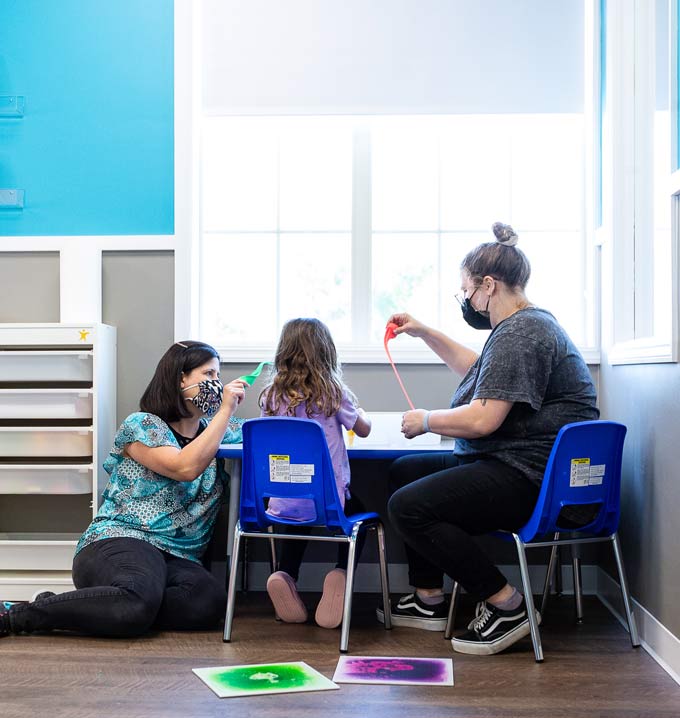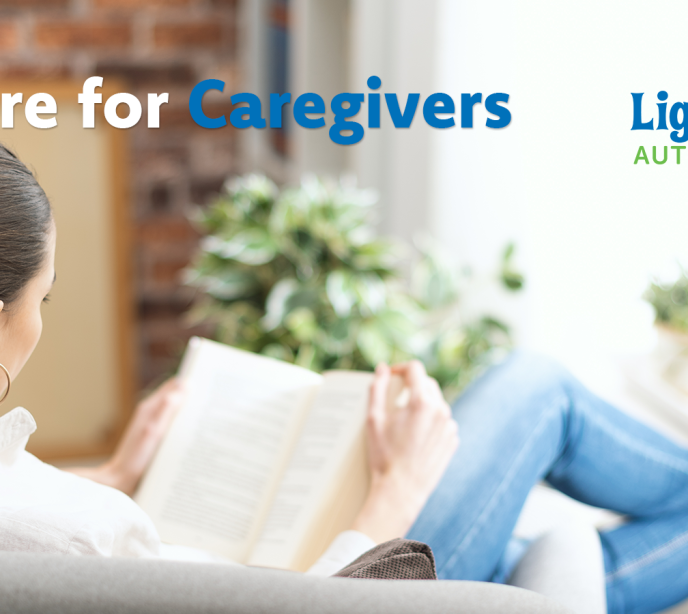How Does Dual Certification Benefit Learners at Lighthouse?
Lighthouse Autism Center has a team of dual-certified clinicians who are Board Certified Behavior Analysts and speech-language pathologists. These experts ensure every learner receives exceptional treatment. Explore benefits of dual certification, types available, and the qualifications required.

How Does Dual Certification Benefit Learners at Lighthouse?
Dual certification in any healthcare field is an impressive accomplishment that showcases a clinician’s expertise in two, often separate, but related areas of treatment. In ABA, clinicians are required to obtain certification as a Board Certified Behavior Analyst (BCBA), which is a recognized standard in the industry. Dually-certified BCBAs, often have additional training, degrees, or licensure in other related fields.
This combination of certifications allows professionals to integrate different therapies and derive a deeper understanding of their work while offering a more comprehensive approach to helping autistic people or those with other developmental disabilities.
Let’s take a look at what it means to be dual certified, different types of dual certifications, what it takes to achieve, and why Lighthouse Autism Center’s team of dual-certified clinicians gives your child the best treatment opportunities.
How does dual certification enhance ABA services?
Dual certification refers to the achievement of holding two distinct certifications. Within the field of ABA, clincians are considered dual-certified when they have obtained certification as a Board Certified Behavior Analyst (BCBA) along with an additional certification in another related field.
The purpose of dual certification is to broaden and deepen the knowledge and expertise of professionals working with individuals with autism spectrum disorder (ASD) or other developmental disabilities. By combining expertise from multiple disciplines, practitioners can offer a more comprehensive and integrated approach to assessment and treatment.
Different types of dual certification, often seen in ABA settings
There are several different types of dually certified clinicians you might find in the autism space. Some of the more common ones include:
BCBA and Speech-Language Pathologist (SLP)
This combination allows professionals to address both behavioral and communication challenges that autistic children may experience. They can provide comprehensive intervention plans that target both ABA-based goals and speech and language goals.
BCBA and Occupational Therapist (OT)
Dual certification as a BCBA and an OT equips professionals with the skills to address both behavioral and sensory-motor challenges. This combination is particularly useful for autistic people who have sensory processing difficulties and require interventions to improve their motor skills.
BCBA and Special Education Teacher
Dual certification as a BCBA and a special education teacher enables professionals to effectively support autistic learners within educational settings. This combination allows for a better understanding of the academic and behavioral needs of autistic people.
BCBA and Clinical Psychologist
This combination provides expertise in both behavioral analysis and psychological assessment. Professionals with this dual certification can conduct comprehensive assessments, design behavior intervention plans, and address the emotional and psychological well-being of autistic people.
What do you have to study to be dually certified?
To be dually certified, individuals typically need to complete the educational requirements and training for both certifications they seek. The specific requirements vary depending on the certifications pursued, but here is a general overview:
BCBA certification
To become a Board Certified Behavior Analyst (BCBA), individuals must have a minimum of a master’s degree in behavior analysis, education, or a related field. They need to complete approved coursework in behavior analysis, accumulate supervised fieldwork hours, and pass the BCBA examination administered by the Behavior Analyst Certification Board (BACB).
Additional certification
The requirements for the additional certification vary depending on the chosen field. For example, to become a speech-language pathologist, individuals need a master’s degree in speech-language pathology, complete clinical practicum hours, and pass a national examination for SLP licensure. Similarly, other professions will have their own specific educational and training requirements.
Dual certification often involves completing the necessary coursework, practical experience, and examinations for both certifications. This typically requires a significant commitment of time, effort, and dedication to studying and gaining expertise in multiple areas.
Benefits of dual certification in ABA therapy
Dual certification offers several significant benefits for professionals working with autistic individuals or people with other developmental disabilities. Here are some key advantages:
Comprehensive assessment and treatment
Professionals with dual certification possess a broader range of skills and knowledge across multiple disciplines. This allows for a more comprehensive assessment of an individual’s needs and the development of targeted treatment plans. By combining expertise from different fields, practitioners can address a wider range of challenges and provide integrated interventions that consider both behavioral and other relevant domains.
Holistic approach
Dual-certified professionals can take a holistic approach to intervention. They understand the interconnectedness between different areas of development, such as behavior, communication, sensory processing, or academic skills. This comprehensive perspective enables them to design interventions that address the underlying issues contributing to behavioral challenges and support overall development in a well-rounded manner.
Enhanced collaboration
Having dual certification facilitates collaboration among professionals from various disciplines. Professionals with dual certification can effectively communicate and collaborate with their colleagues in different specialties, such as speech-language pathologists, occupational therapists, or special education teachers. This collaborative approach promotes a cohesive and coordinated effort, ensuring that interventions are aligned and reinforcing across different domains of development.
Increased job opportunities
Professionals with dual certification often have an advantage in the job market. Their diverse skill set and ability to provide comprehensive services make them highly sought after by employers in various settings, such as autism centers, schools, clinics, or private practice. Dual certification can expand career opportunities and increase professional marketability, allowing individuals to pursue diverse roles and work with a broader range of clients.
Improved outcomes for autistic people
Ultimately, the primary goal of dual certification is to improve outcomes for autistic people. By drawing from multiple disciplines and employing a multidimensional approach, dual-certified professionals can develop more effective and individualized interventions. This comprehensive support can lead to improved behavior, communication, social skills, academic performance, and overall quality of life for autistic individuals.
Dual certification at Lighthouse Autism Center
Lighthouse Autism Center has a team of dual-certified clinicians, some of only a handful in the world, who are both Board Certified Behavior Analysts and speech-language pathologists. These clinicians are experts in the fields of ABA and speech therapy for autism, and every learner at Lighthouse has the opportunity to work with these world-class clinicians.
These therapists specializing in autism are among the many autism resources available at LAC and are also expert practitioners of our innovative Lighthouse Fusion ABA Therapy.
Together, we can unlock your child’s potential
Related News

01/15/2026
10 Simple Self-Care Habits for Autism Caregivers
Caring for a child with autism is rewarding, but can also be demanding in ways that aren’t always visible. Between daily routines, therapy schedules, advocacy, and emotional labor, many caregivers find themselves running on empty, even as they continue to show up for their child every day. Earlier this year, we explored this reality in our blog post, The Power of Pause: Why Caregiver Self-Care […]

01/05/2026
The Power of Pause: Why Caregiver Self-Care Matters
As a new year begins, many families naturally reflect on what they hope the months ahead will bring—more peace, more balance, more support. At Lighthouse Autism Center, we’ll be taking a deeper look at the importance of self-care throughout the month of January, offering resources and encouragement to help caregivers start the year feeling supported and grounded. But […]

11/18/2025
Tips for Picky Eaters and Introducing New Foods
Autistic children are often labeled as picky eaters, but the truth is that they face a unique set of challenges that can make mealtimes extremely stressful. Discover helpful tips on introducing new foods into your child’s diet to make mealtimes more nutritional and enjoyable for everyone at the table. Autism and Food: Tips for Introducing […]


